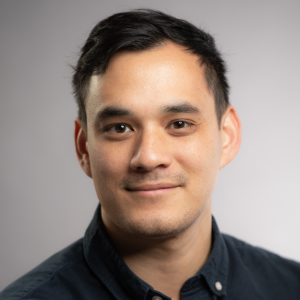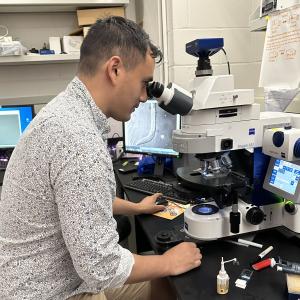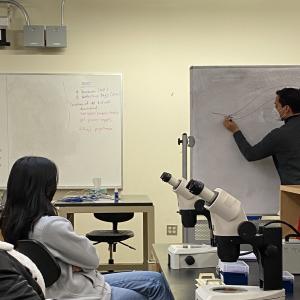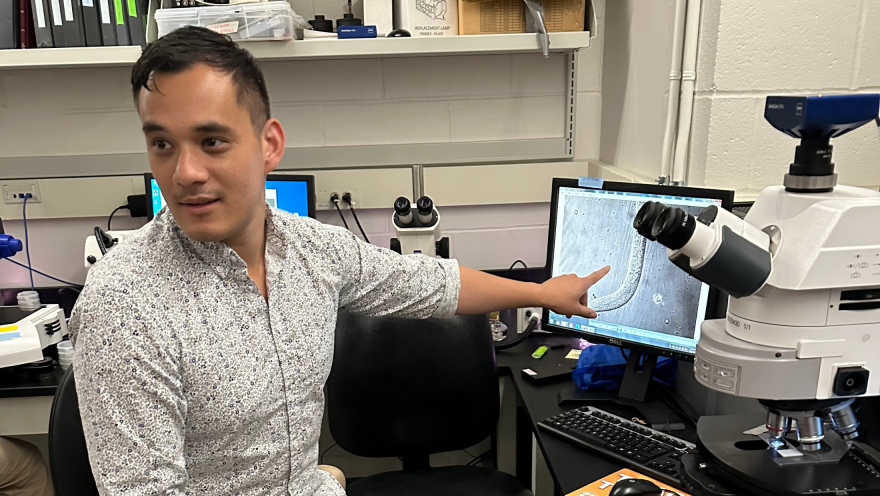We are proud to support the development of bright, young ALS researchers through our Milton Safenowitz Postdoctoral Fellowship Program. Established in memory of Milton Safenowitz by the Safenowitz family, this impactful program has encouraged young scientists to enter and, importantly, remain in the ALS field for the last 20 years. Today, we are shining a spotlight on one of our current fellows, Alexander Lin-Moore, Ph.D., a postdoctoral researcher at Brown University.

For Dr. Lin-Moore, ALS is a puzzle—many of the pieces are known, but how they fit together remains “mysterious and fragmented.” This is part of what drew him to the biology of neurodegenerative diseases, and ALS in particular.
“I’ve been interested in the study of neurodegenerative disease throughout my professional career, not only because of the enormous unmet need for treatments and therapies, but also because I believe that newly developed technologies and biological approaches will open fresh avenues into our understanding, and therefore our ability to combat, these diseases,” he said.
After earning a Ph.D. in genetics from Yale University, Dr. Lin-Moore joined the Hart Lab at Brown University where he is working to better understand ALS caused by changes or mutations in the SOD1 gene.

“My research project focuses on two aspects of SOD1-ALS. First, to identify genes and cellular pathways that modify the process of neurodegeneration,” he explained. “Identifying these disease modifiers is like piecing together a complex circuit—by understanding more and more components of the pathway (or more likely, multiple pathways) that connect protein accumulation to neuron degeneration, we are more likely to identify effective therapies.”
The second aspect involves finding gene expression changes that occur in all cells, including nervous system cells, that are linked to ALS-associated SOD1 mutations. Because genes being turned on or off is one of a cell’s earliest responses to stress or damage, identifying expression changes can help identify genes and pathways that either combat or contribute to the progression of SOD1-ALS and potentially other forms of ALS.
Dr. Lin-Moore is excited to be part of the ALS research community and is motivated by the “commitment and collaborative energy that scientists around the world bring to tackling this disease.”

“The intensity, enthusiasm, and care that the ALS research community shows for science and for patients and their families really inspires me to continue and improve my own work in understanding ALS.”
Dr. Lin-Moore is also grateful for the opportunities provided by the Safenowitz Postdoctoral Fellowship Program. “To be recognized by the ALS Association with this fellowship is a great honor and is also highly motivating to my own work in the study of the disease, both in the immediate future and in regard to longer-term career goals,” he said.
“I'd like to continue my work on ALS as an independent investigator, and I believe this fellowship, both through funding and interactions with other awardees and ALS researchers, is a huge step toward helping me reach that goal.”
If you would like to receive monthly ALS research updates, SUBSCRIBE to our newsletter, Research Matters.
To continue to follow stories about people living with ALS in the community and learn more about the disease, subscribe to receive our weekly blogs in your inbox HERE or follow us at als.org/blog.


Join the conversation. Please comment below.